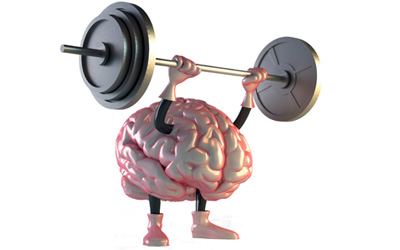The roots of sports psychology date back to the early 19th and 20th centuries. Coleman R. Griffith, the founder of sports psychology, used his pioneering ideas and research to establish the field as an independent disciplinary science. He opened the first research lab for athletic performance and conducted many researches that demonstrated the relationship between physical activity and learning.
“The more mind is made use of in athletic competition, the greater will be the skill of our athletes” - Coleman R. Griffith

Why study sports psychology
The American Psychological Association (APA) has listed sports psychology among the hottest careers. Due to its rapid growth offering various career opportunities, many students are pursuing sports psychology degree programs and courses. The popularity of sports psychology can be linked to our passion for sports since we live in a sports-loving society. Football, basketball, and baseball are just a few of the leading sports that are focusing on the use of psychology to enhance performance and gain a competitive edge. The U.S. sports industry has opened up many challenging yet exciting job opportunities for sports psychology majors.
Is sports psychology for you?
One of the most important steps to take before declaring a major in sports psychology is finding out whether the discipline is right for you or not. You can do this by asking yourself the following questions:
-
Are you interested in sports?
-
Do you want to help athletes improve their performance?
-
Are you fascinated with the mental, cognitive, and psychological functions of athletes?
-
Are you interested in working in the sports industry?
What degree programs are offered in sports psychology?
You can pursue a degree in sports psychology at undergraduate, graduate, and post-graduate levels. You may need to have a bachelor’s degree to qualify for entry-level jobs. You may need a master’s or doctorate degree to practice as a licensed sports psychologist.

Bachelor’s degree in sports psychology
This is a four year undergraduate program that aims to provide students with in-depth knowledge of the key approaches of human cognitive functions and how they relate to sports. Students will be introduced to a wide range of psychology concepts and applied sports psychology theories.
During the first year or two, students will be required to take various introductory courses and build a solid foundation of conceptual knowledge. The introductory courses generally include biological psychology, cognitive psychology, social psychology, and more.
Further in the program, greater emphasis is laid on research and statistical courses. Students will study different modules of sports psychology. The curriculum may vary slightly from college to college. Here are some of the courses that may be studied in a sports psychology bachelor’s degree:
In this course, students will acquire a broad understanding of training methods, testing procedures, and fitness assessment.
In this course, students are introduced to important concepts and scientific approaches that explain how humans move.
This course is designed to provide students with an overview of the structure of human cells, tissues, and organ systems.
-
Ethical issues in contemporary sport
This course will highlight the current moral and ethical issues in sport. Topics such as the following are covered: violence, discrimination, commercialization, and drug abuse.
Master’s degree in sports psychology
The master’s degree in sports psychology is designed to equip students with advanced concepts of sports psychology, kinesiology, sports injury, research and theory. The program takes around two years to complete and also prepares students for various sports psychology certifications.
The coursework is dynamic, allowing students to participate in hands-on training alongside theoretical learning. Here are some of the courses covered in the program:
-
Advanced sport and exercise psychology
In this course, students will explore different social and psychological processes related to exercise and physical activity. Students will learn how psychological and social factors influence sports and performance.
-
Motivational processes in sport and exercise
This course is designed to equip students with an understanding of motivation concepts in sport settings. Different topics covered in the course include: group processes, self-perceptions, exercise adherence, and intrinsic/extrinsic motivation.
-
Stress and coping in sport
This course will cover various theoretical perspectives of stress and coping processes. Students will learn about the history of psychosocial stress and physical activity.
This course is designed to provide students with an overview of advanced techniques used to analyze mechanical factors and human movement. Students will cover important topics such as aquatics, rehabilitation, disability sport, and ergonomics.
PhD in sports psychology
This is a post-graduate program and the highest level of education you can achieve in sports psychology. Students enrolled in this program will develop advanced skills and knowledge that may qualify them for leadership roles in the industry.
The program integrates research, practice, and theory development. The curriculum may cover important courses such as the following:
-
Human performance
-
Leadership
-
Application of social cognitive theories to sport performance
-
Clinical exercise physiology
-
Motor control and learning
Once the coursework in complete, students will be required to pass a qualifying examination and undertake an independent research study. The last few semesters of the program are typically dedicated to research and development of a dissertation or thesis.
Learning outcomes
-
Students may learn how to apply performance enhancement techniques
-
Students may demonstrate a strong understanding of sport psychology concepts and theories
-
Students may be able to provide effective counseling to clients
-
Students may be able to apply tools used for clinical assessment and develop action plans
Sports psychology certificate program
A certificate program is a short course that may help improve your career prospects and equip you with fundamental knowledge of sports psychology. Many individuals and professionals are pursuing certificate programs to boost their career prospects. The curriculum of the program may vary from college to college. Here are common subjects covered in the program:
-
Applied sports psychology
-
Therapeutic boundaries
-
Enhancing performance
-
Psychology of coaching
How to enroll in a sports psychology program?
-
Select a school
-
Go through the admission requirements
-
Submit all required documents such as the following:
-
Official college transcripts
-
Letters of recommendation
-
Standardized test scores (SAT/ACT, GRE, GMAT)
-
Pass the admission test (if any)
Study online!
If you don’t have the time or the resources to attend traditional college, go for a sports psychology degree online. A few schools are now offering online programs in this field. You can study at any time of the day from any location. Online learning is a great way to pursue your academic goals without sacrificing your job or other commitments.

Career prospects
According to the American Psychological Association (APA), sports psychologists working in university athletic departments can make an annual income between $60,000 and $80,000. Sports psychologists can work in different sectors ranging from sports to research and from health to education. The job position you may qualify for will depend on your specialization, interest, and degree-level.
Frequently Asked Question(s)
Q:What is a sports psychologist salary?
A:The precise amount that a sports psychologist will typically earn will depend upon their specialization, level of education, interest, and place of employment. For instance, according to statistics from the American Psychological Association (APA), a sports psychologists who works in university athletic departments can make an annual income between $60,000 and $80,000.
Q:What are some of the courses offered in an online masters in psychology of sports?
A:A sports psychology master's program deals with advanced concepts of sports psychology. This means that students can expect to take courses such as bio-mechanics, advanced sports and exercise psychology, stress and coping in sports, motivational processes in sports and exercise, and many more. For more information, please check out our page.
Q:Can you tell me how to become a sports psychologist?
A:In order to become a sports psychologist, you need to have the right education credentials. For instance many entry level positions in the field require candidates to hold at least a bachelor's degree in sports psychology. For those individuals who are interested in practicing as licensed sports psychologists, a masters or doctorate degree may be required. For more information, please refer to our page.
Q:What is a sports psychologist?
A:A sports psychologist is a professional who specializes in sports psychology. Sports psychology is a branch of psychology which is concerned with how psychological factors may affect performance and participation in sports and exercise, and vice versa. Sports psychology draws on a number of fields such as kinesiology, biomechanics, and physiology.
Q:What does a sports psychologist do?
A:A sports psychologist is a professional who works with athletes in order to help them function and perform at their true potential and enhance their performance. They are concerned with helping athletes use psychological principles in order to enhance mental health, thereby improving performance. They are also concerned with finding the relationship between sports and exercise to psychological development.
Q:What does the 'psychology of sports' refer to?
A:The psychology of sports, or sports psychology, refers to a broad spectrum of disciplines and practices which are concerned with determining the psychological factors which may affect an athletes or teams' performance. Once those factors are determined, the psychology of sports concerns itself with finding techniques and practices which could help enhance performance and ability in sports settings.
Q:Can you tell me about online psychology graduate programs in sports psychology?
A:Online psychology graduate programs in sports psychology are intended for those individuals who wish to work as licensed sports psychologists. The coursework in this program explores advanced concepts of sports psychology as well as related topics such as kinesiology, sports injury, research and theory. This graduate program typically takes two years to complete. For more information on graduate programs in sports psychology, please check out our page.
Q:Can you tell me what a typical sports health psychologist job description is?
A:A sports psychologist typically works closely with athletes in order to help them enhance their performance. They do this by giving them various mental strategies such as visualization and relaxation techniques in order to help them overcome any obstacles they may be facing. Sports psychologists today make up an essential part of the coaching staff of any athletes. For more information, please refer to our page.
Q:Are there different types of psychology graduate programs?
A:There are a number of different psychology graduate programs for interested students to choose from. The graduate program that you choose to enroll in will reflect your particular career aspirations and your career goals. For more information about psychology graduate programs, and which program may be right for you, please refer to our page.
Q:Can you tell me the difference between fitness psychology vs sports psychology?
A:Fitness psychology is a type of psychology that is concerned with the psychological principles which may help promote physical activity and exercise. It is a discipline which draws on sports psychology, a field of psychology which is broader in scope and application. For more information, please refer to our page.
Ask your Question
* All Fields are Required